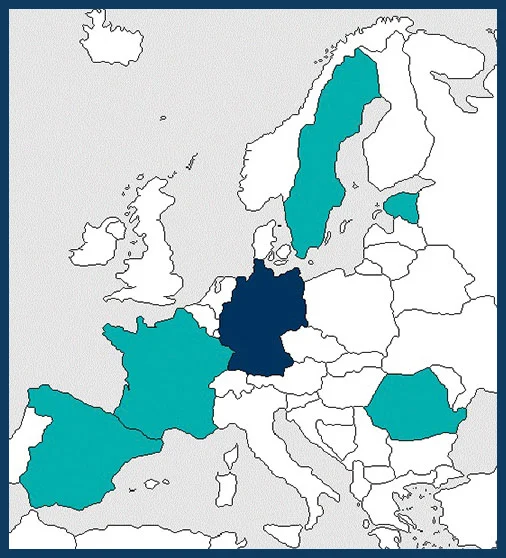03-2017 – 02-2020
€ 2,759,252
Dr. Martin POTTHOFF
Martin.Potthoff@zentr.uni-goettingen.de
University of Goettingen, Goettingen, GERMANY (Coordinator)
University of Tartu, Tartu, ESTONIA Agrocampus Ouest, Rennes, FRANCE
CNRS/Université de Rennes 1, Paimpont, FRANCE
INRA, Rennes, FRANCE
Thuenen-Institute, Braunschweig, GERMANY
Institut für Angewandte Bodenbiologie, Hamburg, GERMANY
University of Agricultural Sciences and Veterinary Medicine, Cluj Napoc, ROMANIA
Spanish National Research Council, Córdoba, SPAIN
Swedish University of Agricultural Sciences, Uppsala, SWEDEN

It is recognised that soil biota diversity and biota interactions are pivotal for driving soil functions such as water and nutrient cycling, soil formation, carbon sequestration and control of pest organisms. In agricultural systems these functions support and regulate ecosystem services directed to agricultural production and agricultural sustainability. A main goal of future cropping systems will be to maintain or raise agricultural productivity while keeping production sustainable in spite of increasing food demands and ongoing soil degradation caused by inappropriate soil management practices. In order to reach these two goals, we need to better understand and valuate the relationships between soil biodiversity, soil functions and ecosystem services in agriculture contexts.
SoilMan aims at fostering the understanding of how the interplay of farm based soil management practices affect soil biodiversity and how soil biodiversity in turn feeds back into soil functions and ecosystem services as factors for productivity and sustainability. Investigations will be performed in typical mainstream agricultural areas, in different European regions (Spain, France, Germany, Sweden, and Romania) graded with the four basic soil management fac- tors: tillage, fertilisation, crop rotation, and residue management.
Soil biota driven ecosystem services will be valuated from socio-economic as well as socio-ecological perspectives and this valuation will form the basis for identifying and developing best practice soil management options, maximising biodiversity and sustainability as well as lowering economic loss for farmers and society. Policies and policy drivers will be compared and related to regional constraints in sustainable soil management, with a special focus on trade related international and regional as well as knowledge related drivers. By the end, Soil- Man will deliver strategies for improving soil biodiversity levels and associated services for the long-term sustainable management of soils as a basis of human nutrition and well-being.
To reach these goals, SoilMan will implement the following activities:
• Inventories of major soil biota groups (microorganisms, enchytraeidae, earthworms, collembolan, mites, gastropods) in the different regional contexts, using morphological and biomolecular tools
• Investigation, using field or lab-based experiments, of different processes: decomposition and carbon cycling, soil aggregation, water infiltration, nutrient availability to plants, nutrient transport and leaching, and suppressiveness (of pathogens)
• Socio-economic and socio-ecological valuation of soil biota driven ecosystem services
Regarding dissemination, SoilMan will devote large efforts to raising stakeholder and public awareness for the importance of soil biodiversity and soil sustainability. In parallel of scientific dissemination and interactions between SoilMan partners, specific actions addressed to stakeholders and the general public will be carried out: technology transfer of knowledge will be done through workshops and publications of technical guide lines; educational tools will be widely distributed to schools or exposed to the general public; trainings addressed to scientists and stakeholders (farmers, technicians) will be managed, and policy recommendations and briefs will be provided.